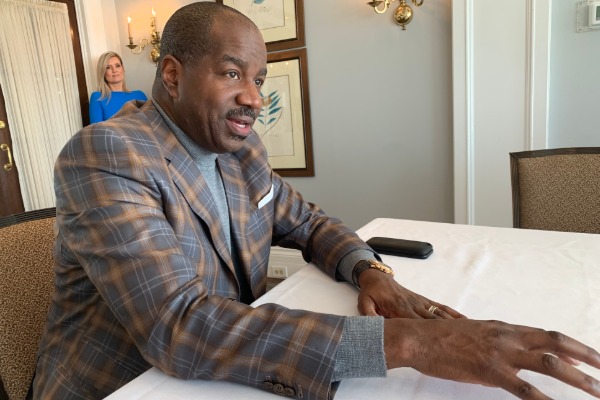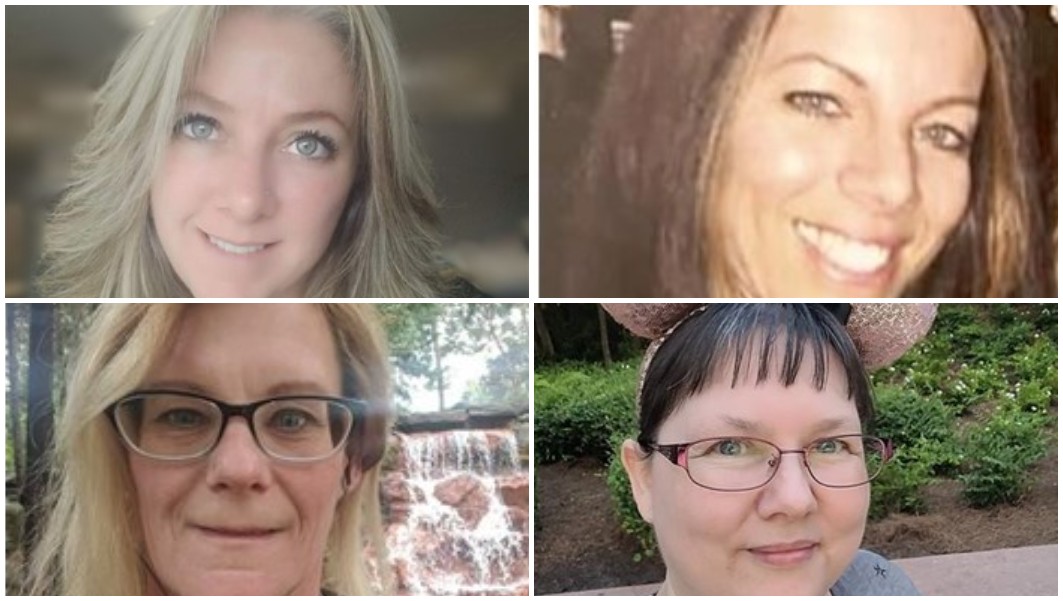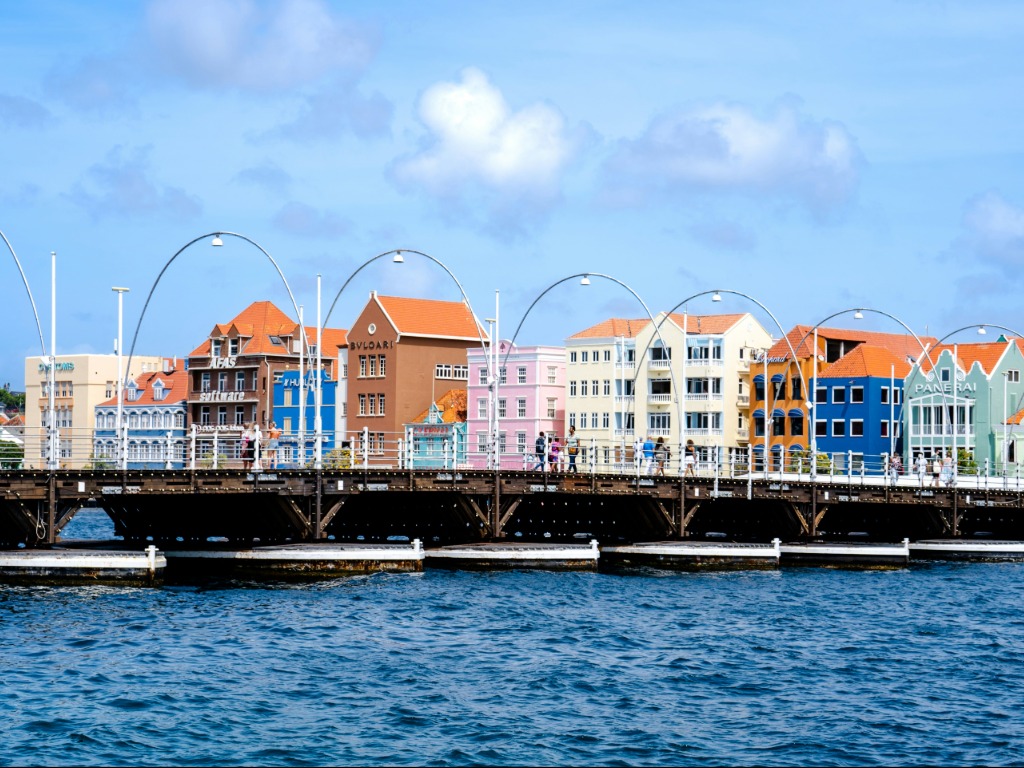A Humanitarian Crisis

In a powerful, and personal, message, Holland America Line president, Orlando Ashford asks the question that we should all be asking ourselves today: “During a time when we’re afraid to go out, fearful of others as possible COVID-19 carriers, how do we ensure we continue acting in ways consistent with our common human dignity?”
What follows is Ashford’s message to the world, it is one that we should all read and remember.
Ashford writes:
“The coronavirus (COVID-19) has run rampant through neighbourhoods, businesses and nations, catching us all off guard. Stoked by fear of contagion, millions of people around the world are sheltering in place waiting out the storm.”
“During a time when we’re afraid to go out, fearful of others as possible COVID-19 carriers, how do we ensure we continue acting in ways consistent with our common human dignity?”
“Holland America Line is working tirelessly to find medical help and safe passage home for the 1,243 guests and 1,247 crew stranded at sea on our two ships, Zaandam and Rotterdam. They are among the 9,000-plus passengers still remaining on about a dozen other cruise ships — https://www.theguardian.com/world/2020/mar/27/stranded-at-sea-cruise-ships-around-the-world-are-adrift-as-ports-turn-them-away — worldwide. These are unfortunate souls unwittingly caught up in the fast-changing health, policy and border restrictions that have rapidly swept the globe.”
“The questions I keep asking myself for guests and crew on these ships are:
- How will those needing intensive medical treatment receive it with limited shipboard medical staff, facilities and supplies?
- Nations are reluctant to share provisions or afraid to carry critical supplies out to us. What happens when our supplies run out?
- Can guests and crew without symptoms get home with limited flights and closed borders?
“Even our guests are questioning, “My President or Prime Minister told me to get home. I’m a citizen. How can my government turn me away?”
“Nations are justifiably focused on the COVID-19 crisis unfolding before them. But they’ve turned their backs on thousands of people left floating at sea. Are these reactions based on facts from experts like the U.S. Centers for Disease Control and Prevention (CDC), or fuelled by irrational fear? What happened to compassion and help thy neighbour?”
Forced to Fend for Ourselves
“We are dealing with a “not my problem” syndrome. The international community, consistently generous and helpful in the face of human suffering, shut itself off to Zaandam leaving her to fend for herself.”
“As a result, Zaandam was forced to take proactive measures, rendezvousing with sister ship Rotterdam to replenish much-needed supplies and protect the health of the guests and crew who aren’t ill.”
“We made the unprecedented decision to transfer to Rotterdam those guests we could quickly and safely move to alleviate Zaandam crew workload immediately, and to get as many guests as possible into rooms with windows and verandahs. Following CDC protocols, we screened guests prior to transfer and all wore protective face masks. To ensure everyone’s well-being, we did not move guests who needed further screening or those likely to need ongoing support by the medical team to Rotterdam. Guests on both ships continue to self-isolate in their staterooms.”
“Reducing the guest count on Zaandam helps available staff better serve those remaining on board. No guests who have been ill or symptomatic were moved, nor were their close contacts. And no Zaandam crew moved to Rotterdam. Zaandam received additional medical supplies including COVID-19 tests, face masks for guests and personal protective equipment for crew, as well as medical staff. This will help, but patients will need to get home for additional medical care.”
How We Got Here
“It’s important to remember passengers and crew did nothing wrong. When voyages began in early March, South and North America had few confirmed COVID-19 cases. The World Health Organization (WHO) was advising against travel restrictions and the Americas weren’t affected by travel or health advisories. Travel in all forms continued to bustle across the continents as recently as mid-March – albeit with more personal hygiene reminders.”
“Within a matter of days, that all changed. Local governments swiftly closed ports globally. Ships previously cleared for docking were abruptly turned away. Officials denied repeated requests for access and assistance and the world shut itself off, leaving ships stranded at sea to make it on their own, which isn’t sustainable. Eventually someone must allow these ships in.”
“Holland America Line began actively monitoring COVID-19 in early 2020, working with international health authorities to step up already-robust screening, prevention and control procedures to keep guests and crew safe. Then on March 13, amid growing global health concerns, we announced a 30-day suspension of global cruise operations. On March 30 that suspension was extended an additional 30 days, cancelling cruises through May 14.”
“For ships like Zaandam mid-operation – its two-week South America voyage began March 7 – we quickly sought approval to disembark guests for flights home. Chile announced the closure of their borders on March 16, literally while Zaandam had been sitting in Punta Arenas for two days awaiting clearance for guests to disembark for flights home. Peru closed, as did Argentina, and the rest of the ports in South America. Repeated requests for humanitarian consideration were denied.”
“Then March 22 – one day after the voyage’s original end date – a few guests and crew began reporting influenza-like symptoms. Despite countless desperate pleas in the following days, we were forbidden to medevac critically ill patients to shore-side hospitals (usually standard operating procedure for comprehensive care that ships aren’t equipped to provide).”
“Already four guests have passed away and I fear other lives are at risk. As of March 30, 76 guests and 117 crew on Zaandam have influenza-like illness, including eight people who have tested positive for COVID-19. We have seen a notable and steady decline in cases of the last 48 hours, which shows the immediate actions we took have helped contain spread.”
“However, there are also 1,167 healthy guests and 1,130 healthy crew across these two ships.”
“Thankfully, the Panamanian government graciously granted humanitarian approval allowing us to move through the Panama Canal, which we did the evening of March 29. Even with this progress, we are still facing a multi-day journey before we can safely dock and disembark. And we need confirmation from a port that is willing to extend the same compassion and grace that Panama did, and allow us to come in so our guests can go straight to the airport for flights home. It’s tempting to speculate about the illnesses that may have been avoided or lives saved if we’d gotten the assistance we sought weeks ago.”
COVID-19 Response a Test of Our Humanity
“It’s easy to condemn those who are unhelpful and unwelcoming during times of need. But what if instead we focus on the type of society we strive to be, where nations share a collective responsibility to help others in peril? Because these travelers could have been any one of us or our families – caught up by a fast-changing scenario nobody foresaw.”
“The COVID-19 situation is one of the most urgent tests of our common humanity. To slam the door in the face of these people betrays our deepest human values.”
“Given the opportunity, I am hopeful that all of us will follow the lead of our Panamanian friends and help our neighbours.”


